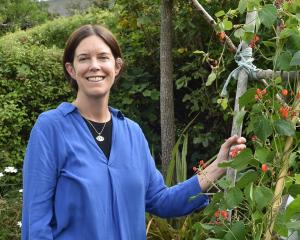Katherine Mansfield is a prolific poet as well as master of the short story, writes Jessie Neilson.
THE COLLECTED POEMS OF KATHERINE MANSFIELD
Gerri Kimber and Claire Davison (eds)
Otago University Press
By JESSIE NEILSON
This colourful, affordable anthology of Mansfield's collected poetry has been published locally by Otago University Press in conjunction with Edinburgh University Press and is a beauty.

Containing 217 poems, it is the first complete anthology of Mansfield's poetry, proving her to be a prolific poet as well as master of the short story. This collection includes previously unpublished material which co-editor Gerri Kimber recently discovered in the Newberry Library, Chicago, archives.
The poetry has been arranged chronologically, divided into several mini- collections reaching from 1903 (when Mansfield was 14) until 1922, when she was by now ill with tuberculosis.
Her first collection, Fronds, is the musings of a teenage girl, lost in a world of fairies, woodlands and seasons as she experiments with voice and lays heavy on pastiche, nonsense verse, and parody. These early works in particular, with a current continually running through her poetry, turn largely to 19th- century collections of children's verse and the sentimentality of pastoral poetry as inspiration. Themes of death, the soul, beauty, yearning, sorrow and others with biblical connotations run wild. An exception to this is the imaginatively titled "An escapade undertaken by a green raspberry, and a kidney bean''.
As she matures and ages, so does her writing, often with an engagement between narrators, although preoccupations with nature and nurturing remain. The evocative Earth Child cycle, a sophisticated and complex work, is a full and varied collection, often reminiscent of Tennyson, Browning and the Rossettis. Much is magical and mystical, and broadening the scope beyond a narrator aligned with herself: "Are your thoughts folded so, little Grandmother'', wonders the narrator, "In the dark lap of the world/ Are they faintly shining . . ?'' Or, as sensuality develops so too does this correspond in nature: "The passion vine trembles as though it will break/ Just like my sorrow - spilling its fainting treasure/ Over the desolate shores of my darkened heart''.
Mansfield's poetry begins to experiment with darker themes as she contemplates ideas of death and even suicide, where her narrator imagines she could "pass into the night/ Take a great leap and die'' or of stars as "hundreds of friendly candles all over the sky/ In remembrance of frightened children''.
Her verse runs the spectrum of extreme emotions, tending frequently towards the rapturous, or else catapulting to lows. She outlines landscapes of the helpless and hopeless, where an old woman hobbles along, and a "crazy song . . . wheeks in her throat''; or the abysmal, where "every twisted tree that bared/Its naked limbs for sacrifice/ Was patterned like a monstrous weed/ Upon a lake of ice''.
The reader could treat this collection as one to dip into at leisure, or more assiduously read from beginning to end. The poetry warms up as she develops her flair for experimenting with styles and voices.
As Mansfield's delight in the poetic form has not been widely known, this comprehensive anthology rectifies that. Extensive and detailed annotations at the end of the book give further insight into Mansfield's influences and innovations.
As the introduction notes, Mansfield's poetry has a "beguiling simplicity'' that belies how much it contains and how well-read and experimental its author indeed was.
Jessie Neilson is a University of Otago library assistant.











